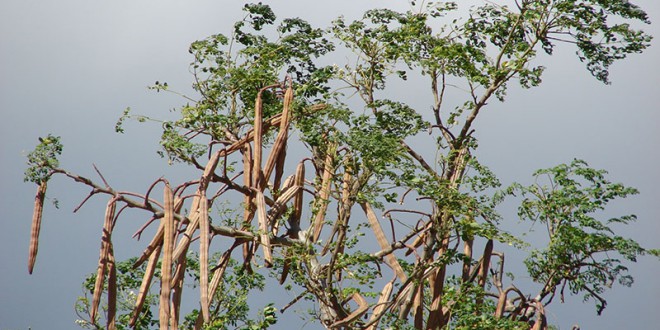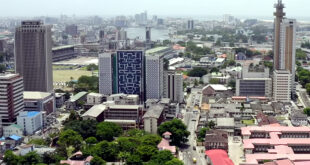BOOK
Medicinal plants and traditional medical practices in Sierra Leone have much to offer the rest of the world. Dr Cyrus MacFoy, professor, researcher and consultant, highlights more than 200 plants used to cure more than 100 diseases and illnesses in this information guide. He provides the plants’ locations, their botanical and local names, their English common names, and the ways they are used to treat and cure ailments and diseases. Roland Bankole Marke reviews the book.
Dr Cyrus MacFoy’s Medicinal Plants and Traditional Medicine in Sierra Leone compiles some 35 years of painstaking research, including interviews with traditional healers and herbalists, and travels to remote areas in Sierra Leone and other parts of West Africa, discovering the priceless wonders of nature. Africa is not just rich in precious minerals such as gold, diamond or bauxite; it is also blessed with ecological endowment, including medicinal plants, Professor MacFoy proves in the book.
The book is about medicinal plants and traditional medicine practices, especially in remote African communities, where access to conventional health services is rare or does not exist at all. And MacFoy, who earned a doctorate in ecological biochemistry from the University of London and has taught in many American universities, writes with authoritative expertise based on his brilliant career as an international scientist.
Despite dwelling on the benefits of medicinal plants and traditional medicine, the book does not claim that they are a replacement for the healthcare system of any nation. However, it shows that alternative medicine has worked better for some people, with fewer complications or side-effects, than Western medicine.
The book contains more than 200 medicinal plants used to treat more than 100 diseases and illnesses, the socio-cultural aspects of traditional medicine and its chemistry and biology.
Take Moringa oleifera plant (pictured) as an example. Almost every part of the tree could be used for beneficial purposes. It is loaded with vitamins, minerals, amino acids, antioxidants and bio-nutrients. Proponents believe that the plant’s leaves prevent about 300 diseases. The plant is very popular in many parts of Africa and its products are increasingly sold in health food stores around the world.
Another important tree featured in this book that’s native to Sierra Leone, South America and South Eastern Asia is the Graviola, commonly called soursop. Its fruits rich in carbohydrate, vitamins C and B1 and B2 and its fruit, seeds and leaves are used to treat viral and parasitic infections. There is a growing claim that soursop could cure cancer. However, there is inadequate scientific evidence to support this claim.
Medicinal plants and Traditional Medicine in Sierra Leone also presents findings about the potential to develop new drugs with local herbs and the integration of traditional practices into the conventional healthcare delivery system.
Professor MacFoy, who has worked for the United Nations, the Commonwealth and the World Bank, has written a timely and resourceful book from which everyone can learn. The language is simple and one doesn’t have to be a researcher or scientist, or have knowledge of any discipline in the medical field to benefit from it. And most of the plants mentioned in the book are accessible in most parts of sub-Saharan Africa.
Every institution of learning from high school to universities should secure copies for their libraries. Medical schools could prescribe it as required reading to stimulate interest in this exciting but challenging domain which deserves a fighting chance. In fact, the book advocates the inclusion of medicinal plants and traditional medicine in the practice of tropical medicine in African countries.
Photo: © WIKIPEDIA
Title: Medicinal Plants and Traditional Medicine in Sierra Leone
Author: Cyrus MacFoy
ISBN: 978-4917—0609-1
Publisher: iUniverse LLC
 THE AFRICAN COURIER. Reporting Africa and its Diaspora! The African Courier is an international magazine published in Germany to report on Africa and the Diaspora African experience. The first issue of the bimonthly magazine appeared on the newsstands on 15 February 1998. The African Courier is a communication forum for European-African political, economic and cultural exchanges, and a voice for Africa in Europe.
THE AFRICAN COURIER. Reporting Africa and its Diaspora! The African Courier is an international magazine published in Germany to report on Africa and the Diaspora African experience. The first issue of the bimonthly magazine appeared on the newsstands on 15 February 1998. The African Courier is a communication forum for European-African political, economic and cultural exchanges, and a voice for Africa in Europe.

































